English Writing Subject Leader: Miss S Fenson
Here at Halling, we teach our children a writing curriculum that enables them to become confident, creative and independent writers. We recognise the importance of nurturing a culture where children take pride in their writing, can write clearly and accurately and adapt their language and style for a range of contexts.
Intent
At Halling Primary School, we intend to create confident writers who develop stamina for writing throughout the school. We aim for all of our children to be independent writers, building on a range of skills as they work through each journey of writing and for them to be able to write for a range of purposes and audiences.
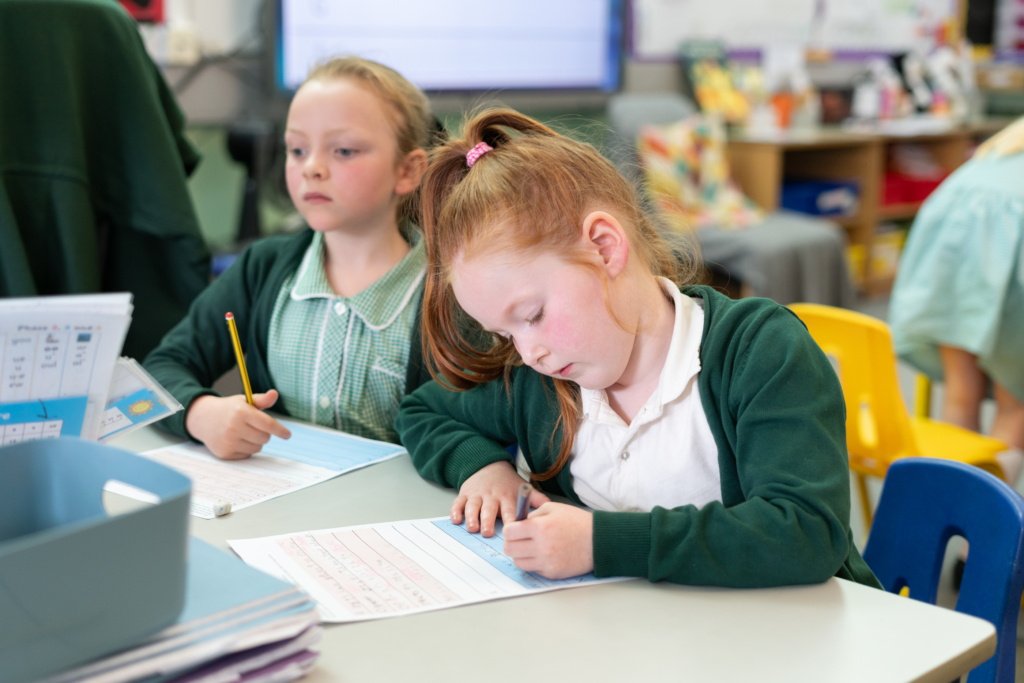
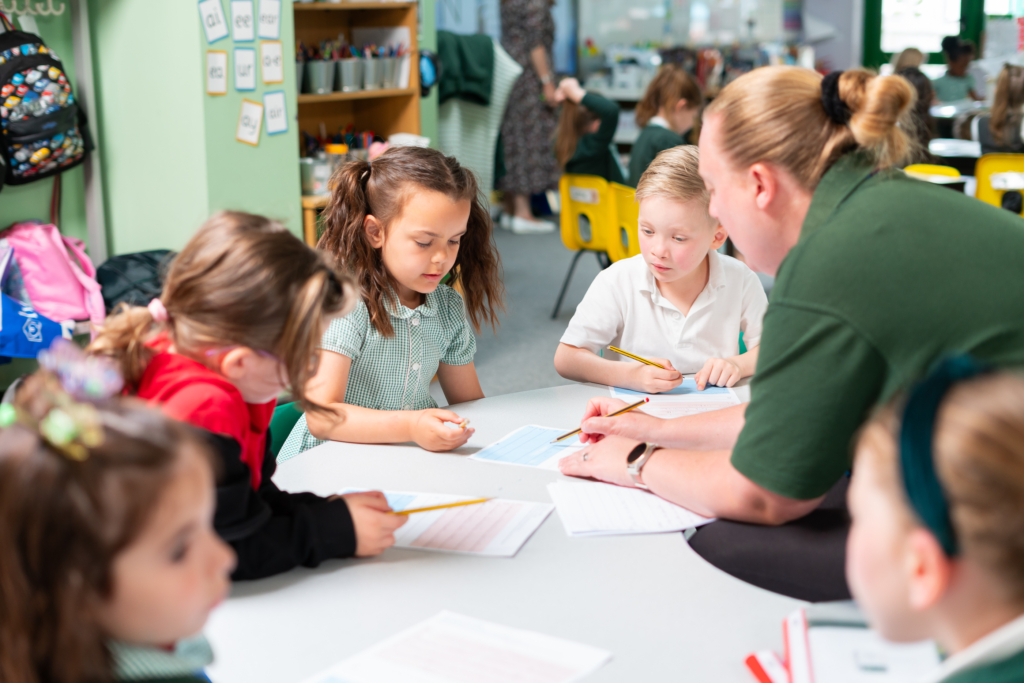
Implementation
Our Writing (and wider English) Curriculum is organised to ensure that it provides many purposeful opportunities for writing, reading and discussion.
Throughout this journey, we ensure the children are immersed in a range of genres and have a clear understanding of purpose. Our children will have a secure understanding of the purpose of a text type, the intended impact of writing skills/tools and the ability to carefully select vocabulary with careful attention to the desired effect on the readers’ thoughts and feelings.
Impact
Children are challenged and encouraged to take risks and view mistakes as part of the learning process. Children should always set high expectations for themselves where they take pride in all aspects of learning and in everything they produce. Through our challenging writing curriculum, pupils become authors who enjoy showcasing their developing Literacy knowledge and skills. Our attainment at the end of EYFS, KS1 and KS2 is above that of Medway and the national average.
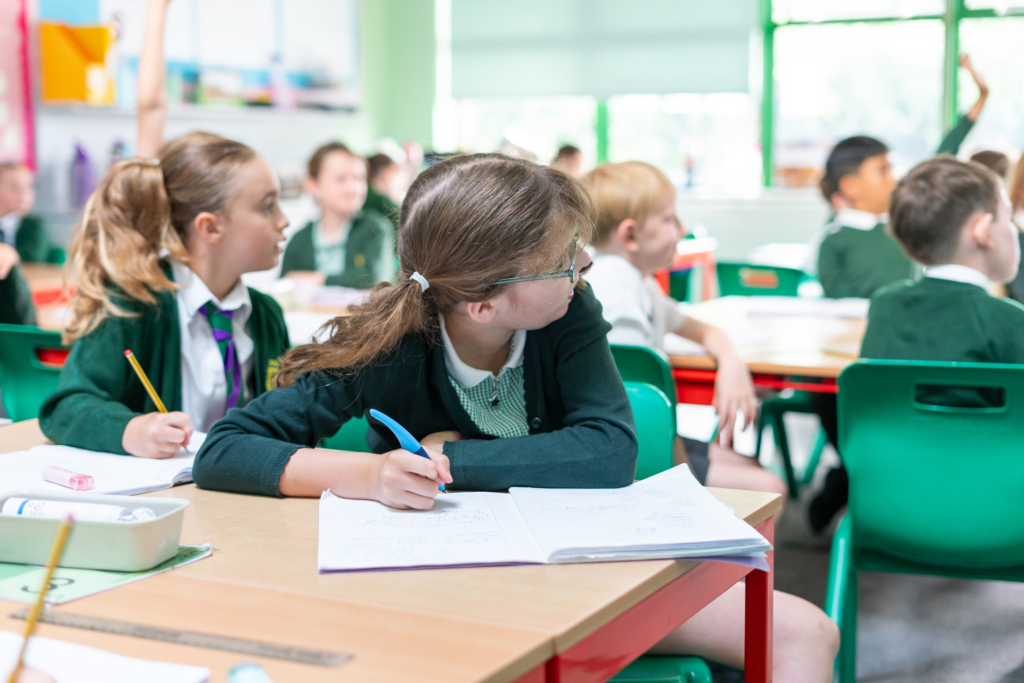
English Writing in Each Stage
Our pupils experience every opportunity to develop excellent literacy and communication skills through access to a wide range of written, audio and visual material to stimulate their early reading and listening skills and encourage recognition of key sounds, letters and spellings, making an early start on learning new technical vocabulary essential later on in school.
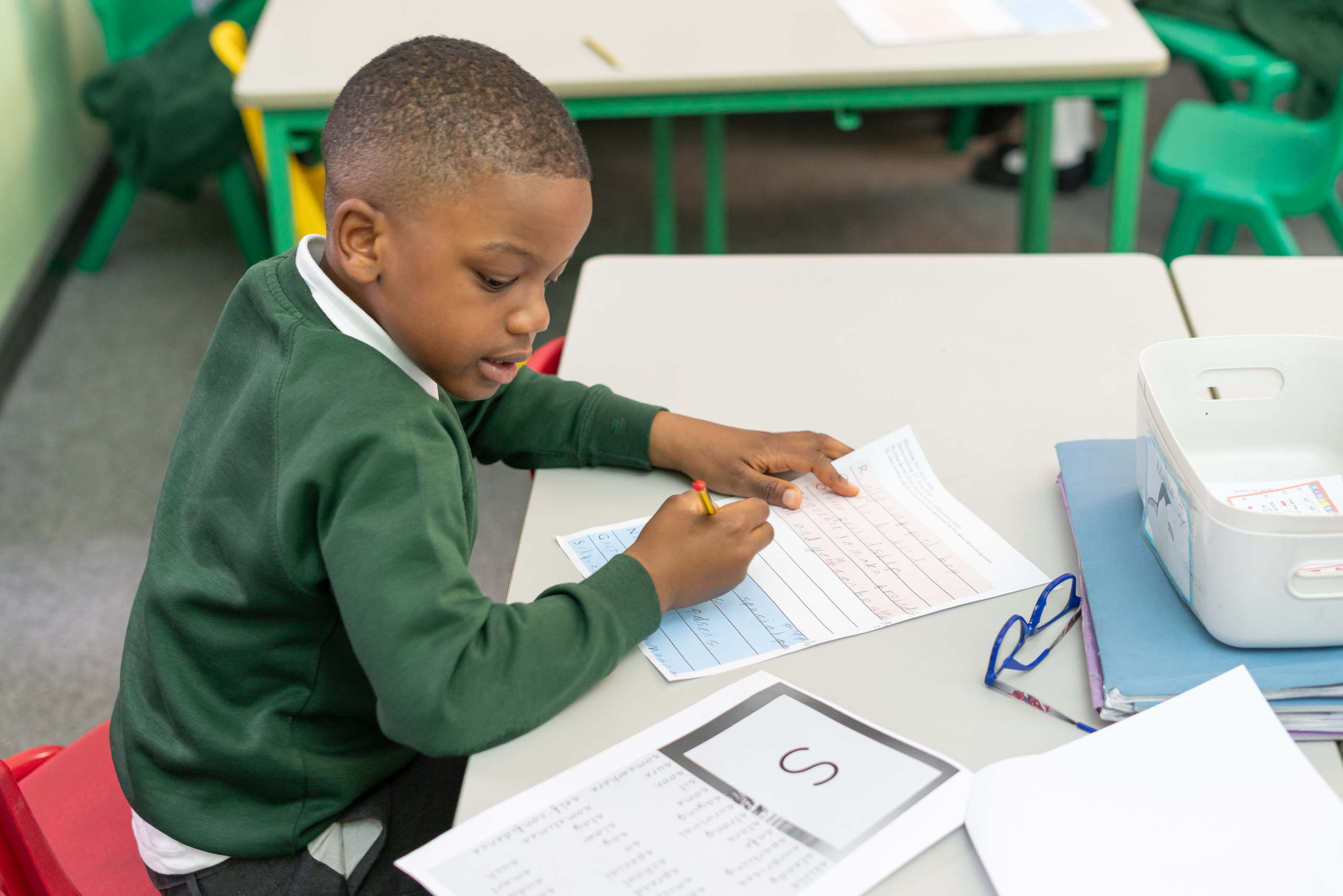
Throughout Year 1, pupils will be encouraged to talk about their writing. They will create lists, write down keywords and illustrate their ideas before writing. Drama and role-play activities will be used to help the children to explore their ideas and to familiarise them with traditional tales and stories. Pupils will write in sentences, linking ideas together using ‘and’ and full stops will be used. They will learn to connect and order their ideas using ‘first’, ‘then’, ‘next’ and ‘finally’. Pupils will have the opportunity to write instructions, recounts and informational texts. Writing frames will enable them to write simple adverts and posters. They will use adjectives to describe the colour and size of things and they will also begin to explore nouns and verbs.
During Year 2, pupils will start to sequence their ideas more confidently in both fiction and nonfiction writing. They will use time connectives, headings and numbers. They will start to create and use simple checklists for their writing and recognise the main features of different genres. Pupils will continue to participate in drama and role-play activities to inspire their writing about real and fictional events. The children will be provided with opportunities to write recounts, instructions, information texts, stories and poems and they will demonstrate an understanding of writing in chronological order. Capital letters, full stops, question marks and exclamation marks will be used more consistently to punctuate their writing and they will begin to use commas to separate items in a list. A wider range of adjectives, adverbs and nouns will be used in all written work. All pupils will be encouraged to re-read their work to check for errors and to identify where improvements can be made.
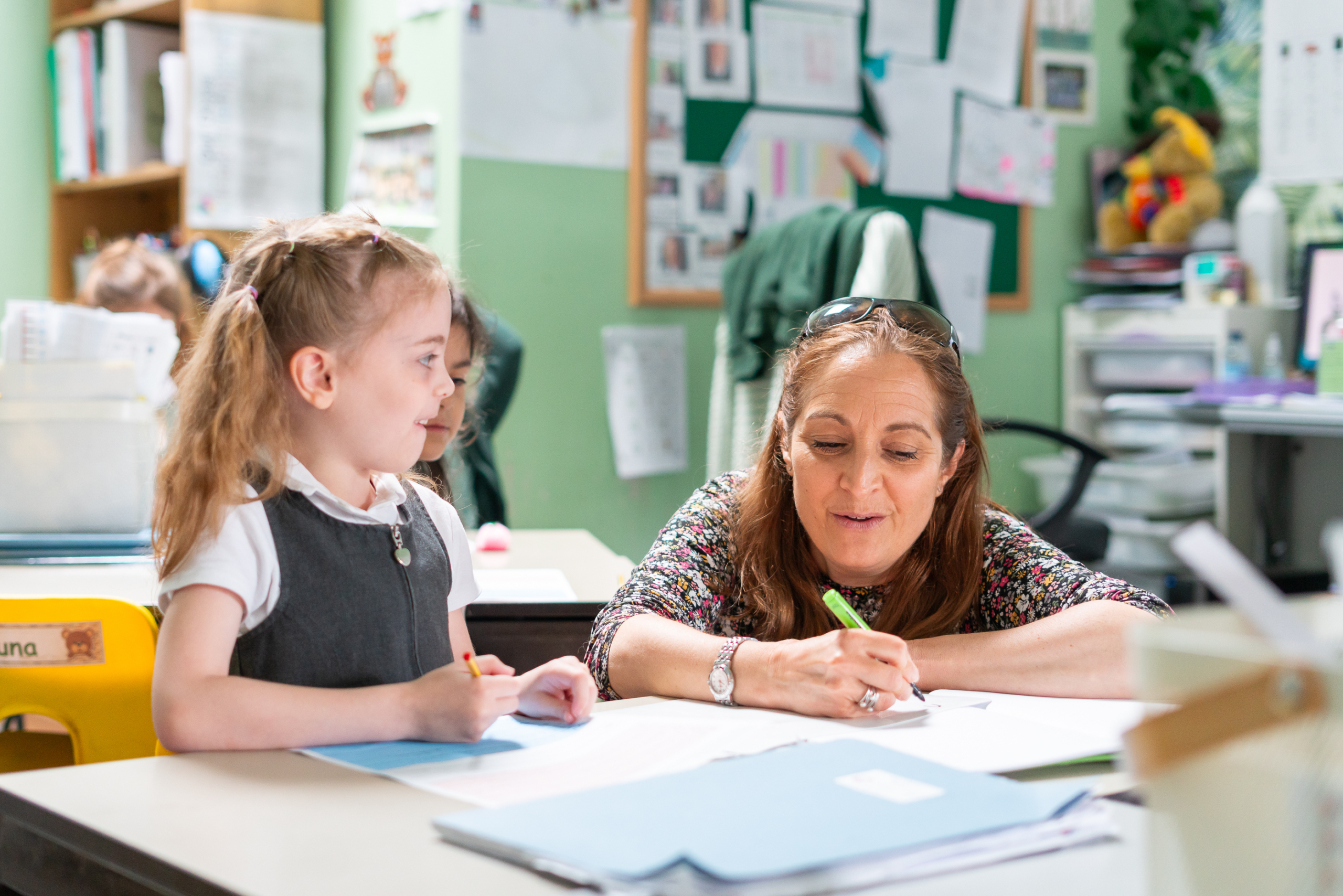
Pupils will use planning structures (such as mind maps) to note down their ideas and key vocabulary before writing. Simple and compound sentences will be used accurately with the correct punctuation. Inverted commas will be used accurately. Pupils will use more adventurous vocabulary such as a wider range of adjectives and adverbs. Pupils will also be provided with regular opportunities to critically evaluate their own and others’ writing.
Simple and complex sentences will be used effectively and will be correct punctuations, including brackets, dashes and commas to mark clauses. Pupils’ ideas will be linked across paragraphs and all work will have a clear structure. Pupils will select specific vocabulary for effect and a varied range of language will be used confidently. Pupils will generate detailed plans before writing, working both independently and collaboratively. Pupils will have the opportunity to write a range of genres with a variety of stimuli such as visual texts and drama pieces. In fiction pieces, ambitious vocabulary will be used to create atmosphere and dialogue to develop characters and action. Pupils will ensure all written work is correctly punctuated along with accurate tenses and spelling. Pupils will edit and improve their work, focusing particularly on style and structure.
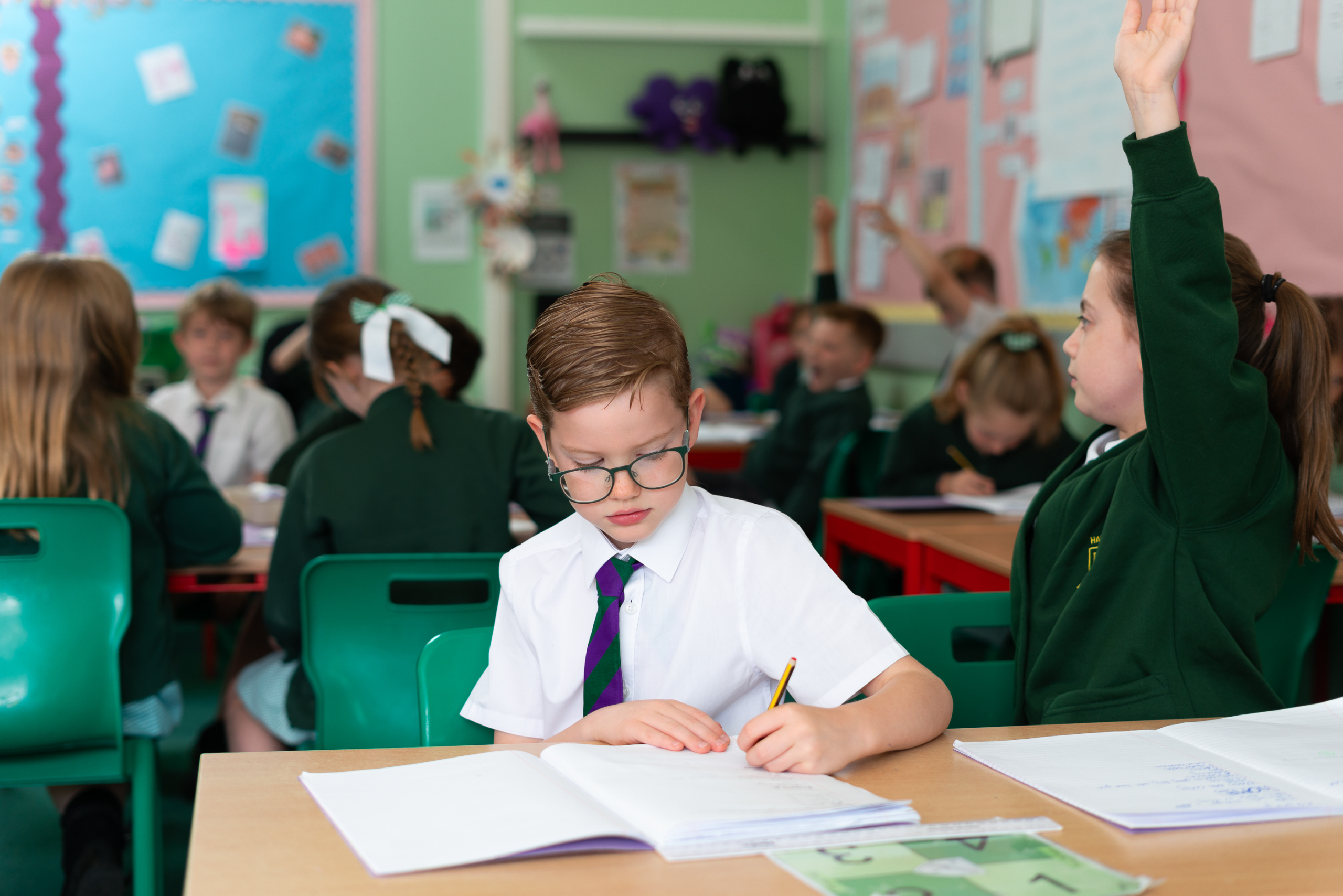
English Writing Progression
SEND Information
Interventions, support and challenges are constantly revised and adapted to ensure all children are supported in achieving learning. The above areas are robustly and continuously monitored to ensure any gaps in learning are addressed.
Assessment
At Halling Primary School, we follow the Chris Quigley ‘Essentials’ Curriculum which sets out essential coverage, learning objectives, standards, and progress measures that are required for all subjects.
For Maths, GPAS (Grammar, Punctuation and Spelling) and Reading, the children will be assessed formally twice a year in Years 1, 2, 3, 4 & 5 and 3 times per year in Year 6. These assessments give the children a standardised score.
English Writing Extra Resources
Further English Writing Help

